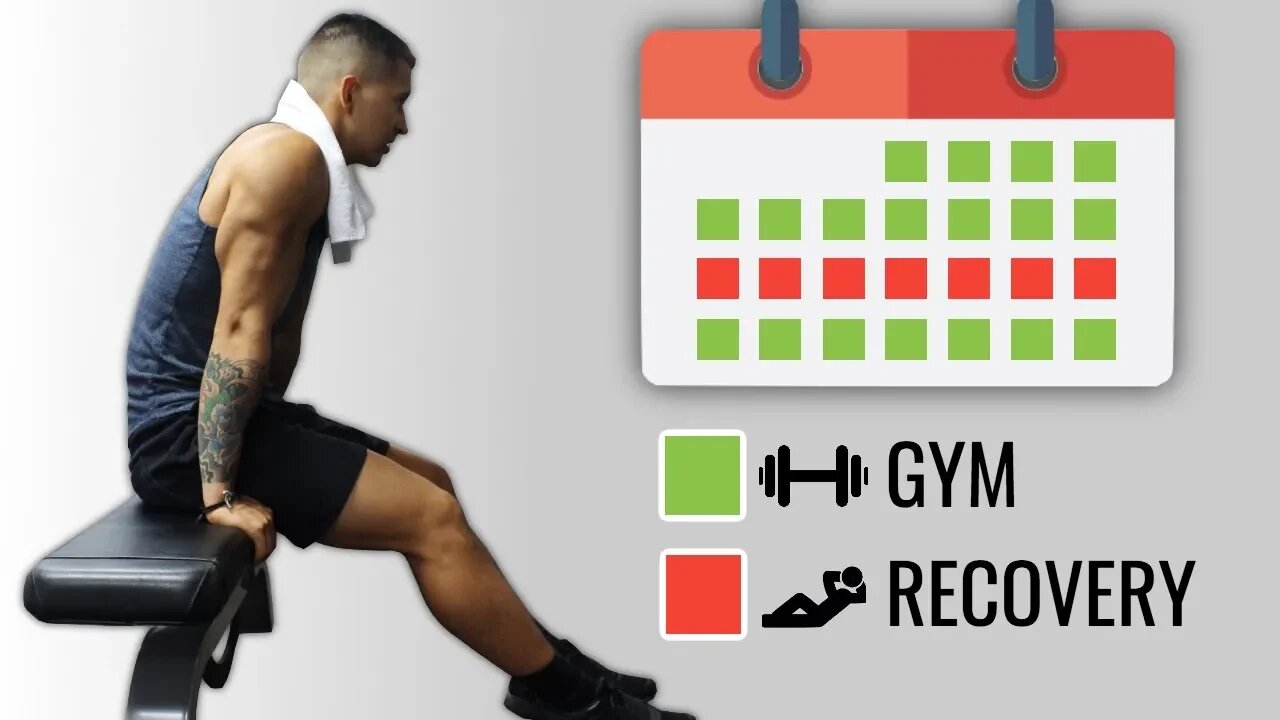Premium Only Content

How to Get BIGGER By Doing LESS (Start Doing This!)
Let’s face it, building muscle is no easy feat and requires you to consistently push yourself harder and harder in the gym week after week. But, there is one often overlooked aspect of training that can enable you to gain more size and strength more effectively, all with less effort than you’re currently putting in. And it’s with something called deload weeks. What is a deload week? A deload week is basically a week where you take it easier on your training.This is done by significantly decreasing your workload for that week. This then enables your body to fully recover and come back bigger and stronger afterwards. Why should you deload? Well, the reasoning behind this is based on research of how the body deals with and recovers from the physical stress of our workouts. Basically, with our training we provide physical stress to our muscles during our workouts. This breaks down portions of our muscle and as a result actually temporarily decreases components of our fitness like our strength. Then, as we recover by using rest days and deload weeks, the body adapts and comes back bigger and stronger for the next session. This is a phenomenon commonly known as supercompensation. Thus, if you’re training hard and consistently, then a deload week is something that you must add to your routine. But unfortunately, most people just don’t know how to deload properly.
So let’s go through how to do a deload week. If you’re a beginner just starting out in the gym or someone who just doesn’t push hard during their workouts, then a full deload week isn’t needed. Instead, you’ll want to focus on getting stronger every week until you reach a plateau. Then, you can lighten the weight you’re stuck on by 10% or so before re-trying that weight the next session. However, as an intermediate lifter you’ll need to implement a deload week. As for how often to deload in this case, you’ll want to run it every 4-8 weeks. And to run it successfully, you’ll want to still go to the gym and perform your usual workouts by lift about 10% ligher than you usually do and cut your workout volume in half. This can be done by doing half the number of sets and less reps for example. As for your deload week cardio and deload week nutrition, simply eat at maintenance calories and avoid any high intensity cardio. The same applies if you’re deloading on a cut. By implementing this into your routine, you’ll notice a big improvement in your fatigue levels and your ability to continuously progress in the gym.
VIEW MY SCIENCE-BASED PROGRAMS HERE:
https://builtwithscience.com/bws-free...
WRITTEN ARTICLE:
https://builtwithscience.com/deload-w...
FOLLOW ME ON INSTAGRAM & FACEBOOK:
https://www.instagram.com/jeremyethier/
https://www.facebook.com/Jeremyethier...
FILMED BY:
Abdo Megahid
Vimeo: https://www.vimeo.com/abdohmegahed
Facebook: https://www.facebook.com/abdohmegahid
Instagram: @abdohmegahed
FILMED AT:
Club One Fitness
https://www.facebook.com/Club-One-Fit...
MUSIC:
Soundcloud.com/lakeyinspired
STUDIES:
Intermittent vs continuous workouts study:
https://www.ncbi.nlm.nih.gov/pubmed/2...
Deload weeks improve strength & how to deload properly:
https://www.ncbi.nlm.nih.gov/pubmed/1... , https://www.ncbi.nlm.nih.gov/pubmed/?...
https://www.researchgate.net/publicat...
-
 LIVE
LIVE
Akademiks
2 hours agoAdin Ross x 6ix9ine x Akademiks stream
697 watching -
 LIVE
LIVE
StoneMountain64
4 hours agoBattlefield REDSEC HARDCORE, Ultra Movement, and CRAZY Portal Games
126 watching -
 1:09:44
1:09:44
Russell Brand
6 hours agoFrom Curb Your Enthusiasm to Courage — Cheryl Hines on Hollywood, RFK Jr. & Speaking Out - SF646
124K22 -
 1:30:26
1:30:26
The Quartering
4 hours agoWoke Is Back!
117K47 -
 1:18:21
1:18:21
DeVory Darkins
5 hours agoTrump issues CHILLING WARNING to GOP as SCOTUS hears arguments regarding Tariffs
108K100 -
 3:35:48
3:35:48
Barry Cunningham
6 hours agoBREAKING NEWS: PRESIDENT TRUMP SPEECH AT THE MIAMI BUSINESS FORUM! (MIKE JOHNSON PRESSER)
99K22 -
 2:04:47
2:04:47
The Charlie Kirk Show
6 hours agoOnward | Henderson, Laurie, Miles | 11.5.2025
106K26 -
 2:15:52
2:15:52
Steven Crowder
9 hours agoWho is the Real Myron Gaines | Ash Wednesday
351K469 -
 1:07:53
1:07:53
Sean Unpaved
5 hours agoRankings, Recaps, & Deadline Deals: CFB Shake-Ups & NFL Trades
56.7K3 -
 2:13:33
2:13:33
Side Scrollers Podcast
7 hours agoAsmongold SUED for Emotional Distress + Hasan REJECTED+ INSANE Plane Crash + More | Side Scrollers
67.7K17